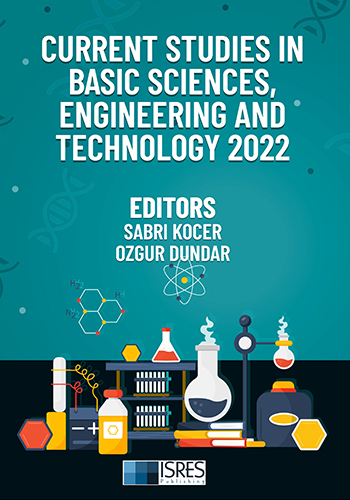This study examines the effects of various heat treatment processes on the dimensional tolerance of metallic materials. Firstly heat treatments such as annealing, normalizing, quenching, and tempering used to enhance mechanical properties like strength, hardness, and ductility were explained. These processes influence dimensional stability due to changes in the microstructure and the release or introduction of internal stresses. Techniques such as stress relief annealing and recrystallization annealing help mitigate dimensional distortions caused by prior deformation or machining. Surface hardening methods, including flame hardening, induction hardening, and cementation, are also evaluated for their impact on maintaining dimensional precision while improving surface hardness. The studies conducted to investigate the effect of heat treating on dimensional tolerances were summarized and finally dimensional tolerances changes of AISI 4140 material after the nitriding process were presented. This analysis highlights the importance of optimizing heat treatment parameters to achieve desired mechanical properties without compromising dimensional tolerances, which is critical for applications demanding high precision.
Effects of Heat Treatments on Dimensional Tolerance
Current Studies in Innovative Engineering Technologies
Editors: Hüseyin ARIKAN, Yusuf UZUN, Mehmet KAYRICI

1096
Effects of Heat Treatments on Dimensional Tolerance
Chapter Authors: Celalettin AKYÜZ, Mevlüt TÜRKOZ
Pages: 1-17
Other Chapters
Effects of Heat Treatments on Dimensional Tolerance
Celalettin AKYÜZ, Mevlüt TÜRKOZ
More Info Pages: 1-17
Interaction between Mechanical Surface Treatment and Tribological Performance in Sliding Bearings
Şeyma KORKMAZ, M. Hüseyin ÇETİN, Hamza ŞİMŞİR, Okan ÜNAL
More Info Pages: 18-47
Investigation of Friction Stir Additive Manufacturing (FSAM) Parameters of Aluminum Alloy
Serdar NUHOĞLU, Ahmet SAMANCI
More Info Pages: 48-62
Reverse Engineering and Additive Manufacturing Applications in Casting Technologiess
İbrahim ASLAN, Ahmet CAN
More Info Pages: 63-84
R&D Studies in the Water Slides Industry
Yusuf UZUN, Hüseyin ARIKAN, Nazmi TURKHAN, Dila YAZ
More Info Pages: 85-96
A Review of Studies on Water Ram Pump
Derviş ALTUN, Ahmet SAMANCI
More Info Pages: 97-105
Personalized Education Systems with Artificial Intelligence
Yusuf UZUN, Ahmet Eşref ARIKAN
More Info Pages: 106-119
Investigation of the Effects of Aluminium Trihydroxide Additive on Mechanical Strength of PP Honeycomb Composite Panels with Polyurethane Matrix
Mehmet KAYRICI, Hasan Hüseyin TAŞER,Ahmet Faruk DOĞAN
More Info Pages: 120-131
Pattern Recognition: Unveiling Hidden Patterns from Data
Yunus Emre GÖKTEPE, Yusuf UZUN
More Info Pages: 132-144
An Example in Innovative Engineering Education: Seydişehir Ahmet Cengiz Faculty of Engineering (SACMF)
Hüseyin ARIKAN
More Info Pages: 145-160
Investigation of Innovative Design and Engineering Approaches in Industrial Design and Product Development in the Context of Usability, Form Creation and Manufacturability through Case Studies
Mahmut Celaleddin KALELİ
More Info Pages: 161-178
Sheet Metal Formability and Formability Tests
Murat DİLMEÇ, Ahmet CAN
More Info Pages: 179-191
Smart Trash Cans for a More Livable World
Nilgün GÜRLER
More Info Pages: 192-199
Investigation of The Effect of Cross-Section Geometry on Bending And Compression Behaviour of Glass Fiber Profile Composites
Mehmet KAYRICI, Hasan Hüseyin TAŞER, Mustafa Fatih MUSLU
More Info Pages: 200-218
Budapest/Hungary Conferences - August 28-31, 2025
We are pleased to invite you to ISRES conferences, which will be held at Obuda University/Budapest/Hungary on August, 28-31, 2025. The following conferences will be held in Budapest/Hungary:...
15.01.2025
Trabzon/Türkiye Conferences - May 01-04, 2025
ISRES Spring Conferences - Trabzon/Turkiye SOCIAL SCIENCES – May 1-4, 2025, Trabzon, Türkiye * 5th International Conference on Social Science Studies - IConSoS2025 ...
11.12.2024
Peja/Kosovo Conferences - July 10-13, 2025
We are pleased to invite you to our conferences, which will be held at University of Peja Haxhi Zeka on July, 10-13, 2025. The following conferences will be held in Peja/Kosovo: - 7th Internat...
28.11.2024










_Sayfa_001_23-12-2025.jpg)















 (1)_16-12-2024.jpg)


_29-12-2024.jpg)
 (1)_01-01-2025_10-03-2025.jpg)
_01-01-2025.jpg)

















































